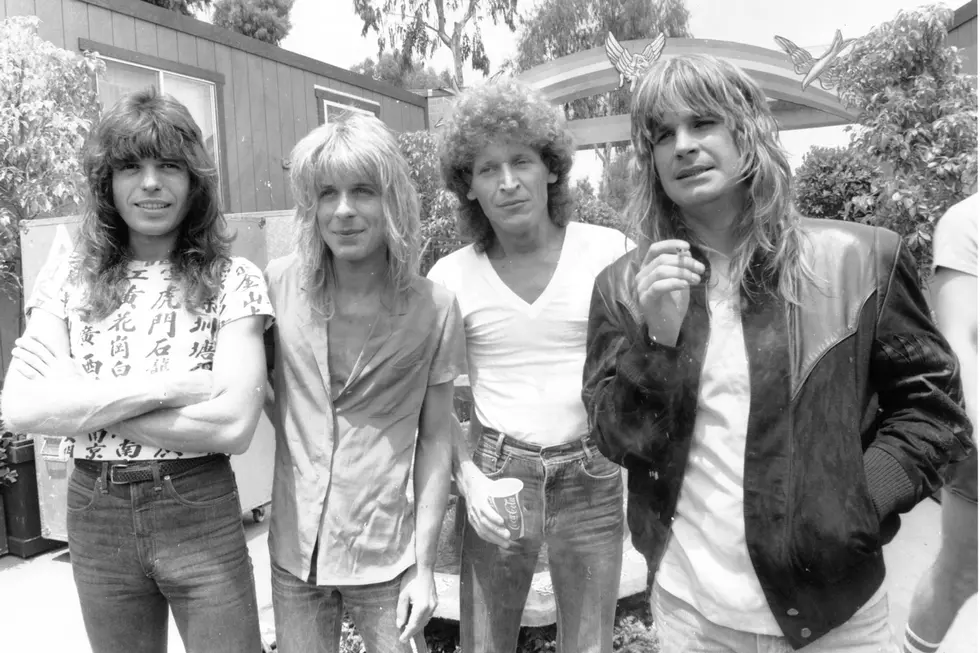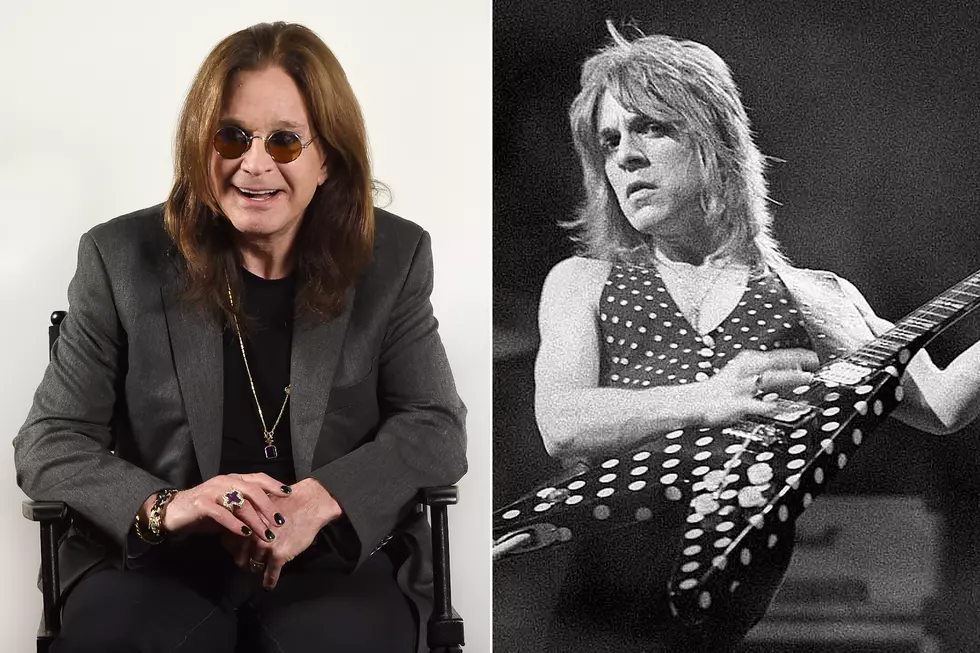
Rudy Sarzo Recalls ‘When the Real Randy Rhoads Showed Up’ for Ozzy
Rudy Sarzo recalled asking Randy Rhoads what had happened to him when the bassist first heard the guitarist’s contribution to Ozzy Osbourne’s band.
Rhoads had left Quiet Riot to join the Blizzard of Ozz lineup in 1979, later bringing bandmate Sarzo into the Black Sabbath singer’s band. But before that, Sarzo was astonished to hear what Rhoads had written for Osbourne because it was so different from his Quiet Riot compositions.
“I even asked Randy about it,” Sarzo told AL.com in a recent interview. “Because that was my impression when I first heard the Blizzard of Ozz record. Like, ‘What happened? What’s going on here?’”
He was aware that Rhoads had extensive musical education and played classical guitar, but none of that played a role in Quiet Riot. “We were basically chasing our tails, by trying to please the record company, taking their advice: ‘You guys should write a song like this one or this one that’s on the Billboard charts,’” he recalled. “Even though we knew what we liked, we were trying anything possible to break in so we could be ourselves later on. So Randy went through that.”
When Rhoads signed up with Osbourne, Sarzo added, he wasn’t expected to follow the latest trends any longer: “When he joined Ozzy, he asked Ozzy, ‘What do you want me to write?’ And Ozzy said, ‘Just be yourself.’ That’s when the real Randy showed up in the studio and started composing all those songs.
“With Quiet Riot, Randy was teaching [music] about eight hours a day and then he would come over and rehearse with us for about an hour … then go home and do it again the next day. So there wasn’t room for jamming and experimenting. It was pretty much focused on, ‘We’ve got to write a hit song, or something commercial that gets on the radio.’ And when you start approaching music like that, you’re not going to be digging in too deep. And you’re going to be second-guessing a lot and playing it safe also.”
Following Rhoads’ death in 1982, Sarzo rejoined Quiet Riot and helped them find success with their Metal Health album, released the following year. But he was critical of how label bosses behaved even after they hit the big time, noting it was a “tricky” experience to live through. "They don’t take you into a room, and give you orientation or play you a video, that tells you, like, ‘This is what you need to watch out for. Don’t let this happen to you!’" he explained. "And I think they should. I think that the record industry, in general, did a very poor job in warning musicians about the pitfalls of being a celebrity."
Top 30 Glam Metal Albums
More From KYBB-FM / B102.7










